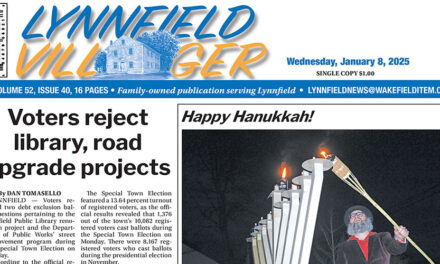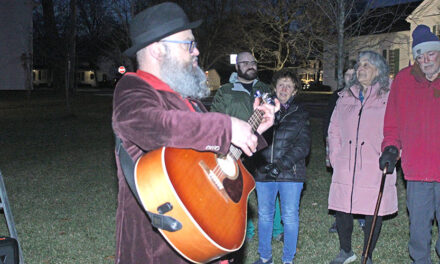By MAUREEN DOHERTY
LYNNFIELD — Viable proposals on the future use of the historic seven-acre Centre Farm are currently being solicited by the Capital Facilities Advisory Committee (CFAC) and the town from all interested parties.
Proposals must be submitted to the town by Monday, March 16, one week in advance of a public forum for proponents to present their proposals to CFAC, which is a subcommittee of the Board of Selectmen. That forum will be held at the Lynnfield High School Media Center, 275 Essex St., on Monday, March 23 at 7 p.m.
CFAC Chairman Ted Caswell told the Villager last week that his committee recently met with new Town Administrator Jim Boudreau to discuss the Centre Farm property, which the town purchased last October from the Donovan family for $1.4M, and this is the next step in the process.
“CFAC needs to be sure it’s very well known that we did what we said we would do and this is their shot,” Caswell said. They want proponents to convince them of the viability of the options they envision for Centre Farm that would provide a better outcome for the town than having it remain a single-family residential use that would be sold to a private buyer with deed restrictions. Traditionally speaking, municipalities do not make good landlords, Caswell believes.
“The CFAC definitely feels that the best use of that property is exactly the way it is now, single-family residential with restrictions,” he said.
Caswell noted that the property is zoned single-family residential, therefore any other proposed use, such as a commercial use, would require a rezoning authorization by Town Meeting. CFAC and the town would work with a proponent of a viable option in seeking the necessary zoning changes but there is no guarantee that a zoning change sought would pass.
Draft proposals would be acceptable at this time because CFAC understands proponents are not going to have full-blown plans ready within the next month, he said.
“For me, it’s not about the final details. It’s about the idea, it’s about the philosophy, the viability of sustaining itself. How do we pull it away from the town so that the town is not a landlord?” Caswell said.
Viable proposals must include details on “how any sustainable use would operate and financially stand on its own,” he said. Final details of an acceptable proposal would be worked out following the April 27 annual Town Meeting.
Proposals may be submitted via e-mail to Caswell at ted@fmcpm.com or dropped off in person to the Town Administrator’s office at Town Hall, 55 Summer St., by the March 16 deadline marked to the attention of Bob Curtin, assistant to administration.
If a practical option is presented at the March 23 forum, Caswell said CFAC’s goal would be to “wrap up all the details and have that particular warrant article ready to be presented for Fall Town Meeting next October because the town does not want to wait until the spring of 2016 to get the property off the books.”
The town purchased the property, with its 1810 era brick-end Colonial farmhouse and barn on seven acres of land, to prevent it from being sold and subdivided, which many feared would change the colonial character of the town center, including the town common as well as two historic burying grounds.
Without deed restrictions in place, the property has enough frontage and area for at least two additional house lots of one acre and one-half acre, respectively, but doing so would likely result in the loss of some of the property’s iconic architecture, such as its huge barn.
If no viable use for the Centre Farm property is proposed at the public forum on March 23, the town would draft a warrant article asking voters at April Town Meeting “to allow the selectmen to dispose of the property via sealed bid with the help of a town consultant in order to get the most value back to the town given the newly imposed deed restrictions,” he said.
“The timeframe for the sale would not be defined in the warrant but it would allow a prospective bidder to know that a strong bid can be acted upon in a set amount of time,” Caswell said, adding, “This process would be the preferred method to get the highest price for the property because many prospective buyers may not want to invest the time considering the property if the town does not have the authorization to sell it.”




